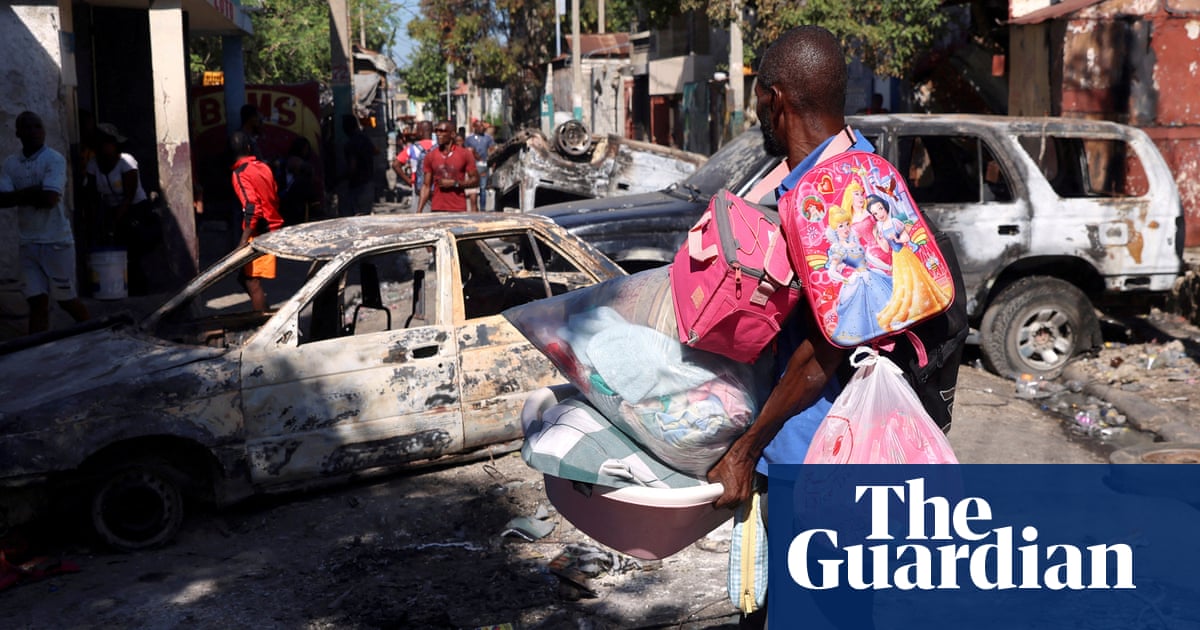The United States has designated a powerfulHaitiangang alliance, whose members have taken control of almost all the capital city as a “transnational terrorist group”.
The criminal coalition known as Viv Ansanm (Live Together), and another faction, the Gran Grif gang, which in Octobertook responsibility for a shocking massacreof at least 115 people in the agricultural town of Pont-Sondé, were both covered by the move on Friday.
“They are a direct threat to US national security interests in our region,” the US secretary of state,Marco Rubio, said in a statement, adding that providing material support or resources to the gangs could lead to “criminal charges and inadmissibility or removal from the United States”.
Theconflict in Haitihas been met with little international response, while neighboring countries, including the US, have continued to deport migrants back to the Caribbean country despite United Nations pleas not to due to humanitarian concerns.
More than 1 million people have been displaced by the conflict, and tens of thousands more in recent weeks, as the violence has spread to central Haiti, forcing more health facilities to shut their doors and pushing more people intosevere food insecurity.
Frozen US funding for security efforts and thedismantlingof the US Agency for International Development, as well as other cuts, also complicate the situation.
The latest designations come after the US in FebruarydesignatedVenezuela’s Tren de Aragua gang, alongside a number of other organized crime groups across Latin America, including Mexico’s Sinaloa cartel, as global terrorist organizations.
It was unclear what, if any, impact the terrorist designation would have regardingHaiti.
Those who do business in Haiti also could be affected by the new designation.Gangscontrol the areas surrounding a key fuel depot and the country’s biggest and most important port, as well as the main roads that lead in and out of the capital, where they charge tolls.
“It could function as a de facto embargo,” said Jake Johnston, the international research director at the Washington-based Center for Economic and Policy Research.
“The gangs exercise tremendous control over the commerce of the country,” he said. “Doing any kind of business with Haiti or in Haiti is going to carry much greater risk.”
Armed groups in Haiti have made significant gains in the first part of 2025, as an underresourced, UN-backed security mission has stalled, and along with police has been unable to hold off advances of the heavily armed and well-funded gangs.
The UN has called for tougher measures to prevent guns being trafficked to the Haitian gangs, especially from the US, which it said was the major source of illegal firearms in Haiti via ports in Florida.
Haiti has not held an election since 2016 and the man elected president then, Jovenel Moïse, wasassassinatedin 2021.
